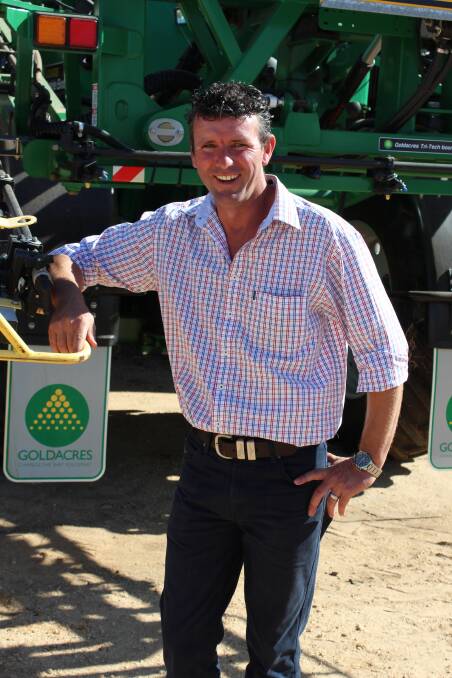
WHILE many farmers were concerned that the news earlier in the month that China had suspended all trade activities under the China-Australia Strategic Economic Dialogue, Australian grains industry officials have said product is still being exported to the Asian giant.
Subscribe now for unlimited access to all our agricultural news
across the nation
or signup to continue reading
Brett Hosking, Grain Growers chairman, said while some grain crops, such as barley, remained off the table due to ongoing Chinese tariffs which remain in place exactly a year after being implemented in May last year, there were still good sales in other grain commodities such as wheat.
"Wheat sales have actually been very strong, which reflects the nature of the world market with all grain in high demand, especially from Australia which is one of the most reasonably priced exporters at present," Mr Hosking said.
He said the Chinese decision to suspend the economic dialogue was largely symbolic as it had not been used in practice for several years.
Nor, he said, would it have any impact on Australia's decision to take China to the World Trade Organisation for its tariffs, which Australia claims are unjustified.
"They could lift the tariffs tomorrow and we would still follow through with the WTO action as we believe it's the process it should go through," he said.
However, Mr Hosking said the strained diplomatic relationship between Australia and the world's largest buyer of grain was not ideal for Australian grain exporters.
"At present the grain supply is tight so China is buying Australian wheat, but you wouldn't think the Chinese government is talking up Australia as a preferred source for grain," Mr Hosking said.
"It has been a similar story for other Australian exports, when they don't have the options to buy elsewhere, such as with iron ore or wool, the Chinese are still very active, but with more discretionary products like lobster or wine they have implemented tariffs."
"When they have opportunities to buy elsewhere you'd have to expect they would look at that given their government's actions with Australia over the past year, but there will still be sales so long as they need the product."
Mr Hosking said, however, Chinese demand would continue to present opportunities for Australian exporters, even if not directly.
"We've seen it in barley, China is buying its barley from elsewhere but that means other barley buyers have to look for supply from somewhere and that has been Australia in many cases."
Andrew Whitelaw, Thomas Elder Markets, said China had been buying wheat from Australia in solid volumes in early 2021.
"We saw 145,000 tonnes go out in bulk to China in January and 185,000 tonnes in March, while 35,000 in that period went in boxes, so you are over 350,000 tonnes, it is a good amount, particularly after a lot went out at the end of 2020 as well," Mr Whitelaw said.
He said Australia would continue to be a particularly important source of grain for world buyers until northern hemisphere crop starts to come online following their harvest, which is not until late June in many parts.


